and how the biblical concept upholds it
The ordaining of laws in favor of one part of the nation, to the prejudice and oppression of another, is certainly the most erroneous and mistaken policy. An equal dispensation of protection, rights, privileges, and advantages, is what every part is entitled to, and ought to enjoy.
—Benjamin Franklin—
Key points: Americans today desperately need to rediscover and faithfully reapply the ideal of equality held by the Founding Fathers and affirmed in America’s Founding Documents. Here’s why. That view of equality is a friend to liberty, and the contemporary American view of equality is its enemy.
A one-page summary of this article is available in a PDF file here.
Last time we began exploring the perspective the Founding Fathers shared on equality. They wrote prominently of this ideal in the Declaration of Independence, even though the word equal does not appear in it frequently. As Larrey Anderson of American Thinker points out in his important article on the theme of equality in America’s founding documents,
Our Founding Fathers were fully aware of the dangers of the state trying to impose “equality” on its citizens. The specific word “equality” does not appear, anywhere, in either the Declaration of Independence or the Constitution. Variations of the word “equal” (“equal” and “equally”) appear twice in the Declaration of Independence and eight times in the Constitution.

Mr. Anderson goes on to make this observation, which we cited at the top of our previous post: “The two appearances of the word “equal” in the Declaration of Independence both refer to a “starting point” for human beings under the law.” He then continues,
The first line of the Declaration of Independence reads in part:
“… to dissolve the political bands which have connected them with another and to assume among the powers of the earth, the separate and equal station to which the Laws of Nature and of Nature’s God entitle them …” [Emphasis added.]
In other words, if people are not treated equally before the law by their government, they may “dissolve the political bands.” Stated differently, if all citizens do not have equal protection under the law, they have a right to overthrow the regime. This has nothing to do with the state making people equal, or forcing them to be equal, or guaranteeing that all citizens are equal — this is a revolutionary statement about overthrowing an unjust regime.
The second use is the famous one:
We hold these truths to be self-evident, that all men are created equal, that they are endowed by their Creator with certain unalienable Rights, that among these are Life, Liberty and the pursuit of Happiness.
Our Founding Fathers believed that we have the same rights “coming out of the box,” so to speak. But after that…all bets are off. The government protects only three things: life, liberty and property.…[Drawing on John Locke’s emphasis on government’s responsibility to protect “life, liberty, and property,” Jefferson replaced “property” with a broader concept: “the pursuit of Happiness]. It [government] does not make us equal. God takes care of that.
Our Founding Fathers believed that we have the same rights “coming out of the box,” so to speak. But after that…all bets are off. The government protects only three things: life, liberty and property.….It does not make us equal. God takes care of that.
—Larrey Anderson of American Thinker—
Mr. Anderson’s insights are tremendously helpful to us as we continue to consider what the term equal meant to the Founders, and what they intended for it to mean in America with regard to personal liberty and the duties of government. The following statements come from two key paragraphs in Part 1.
From where does the idea of equality come? It comes from God! Members of the human race are created equal by God because He makes every individual person in His image (see Gen. 1:26 -28; 9:6).…
It cannot be denied that the equality-among-men that Jefferson, the Committee of Five, and the delegates to the Second Continental Congress promoted and upheld is not one achieved through societal manipulation or government intervention, but one that already exists. Just as the rights the Founders affirmed were innate or “unalienable” because they are rooted in divine creation, so, too, was and is human equality itself. It is an equality, not of outcomes, but of opportunity; so it is an equality government has a duty to recognize and protect. No, not all have the same opportunities; but all ought to be equally free to pursue the opportunities they have and the opportunities they carve out for themselves without violating the unalienable rights of others.…Again, government can’t engineer it [equality], for if it did, it would create an unequal playing field, favoring some over others!
Founding Father Alexander Hamilton wrote in 1775, “The sacred rights of mankind are not to be rummaged for, among old parchments, or musty records. They are written, as with a sun beam, in the whole volume of human nature, by the hand of the divinity itself; and can never be erased or obscured by mortal power.”
Implications and Affirmations of God-Ordained Equality
Since the equality the Founders upheld was and is God-created, let’s turn to Scripture to explore some of the implications and affirmations of this kind of equality. Each one of the following items aligns with the ordered liberty the Founders affirmed in the Declaration in 1776, and eleven years later in 1787 at the Constitutional Convention where they crafted the Constitution. What qualities, values, and ideals does equality imply and affirm?
First, accountability. We’re talking here about accountability to God as well as accountability to our dependents, those who rely on us as free and responsible individuals. Having been made by God in His image, we are to be creative, productive, and diligent as we go about managing the portion of the world God has delegated to us to manage (see Gen. 1:26 -28 and our previous discussion of the cultural commission). As we indicated, we also are accountable to work to meet our own needs and the needs of the members of our family. Meeting needs is not government’s job. Founding Father James Madison said, “Charity is no part of the legislative duty of the government.” The apostle Paul wrote this to the Thessalonians Christians in 2 Thessalonians 3:10: “For even when we were with you, we commanded you this: If anyone will not work, neither shall he eat.”
Further, we are accountable to respect the rights of others, with the right to life being the first and most basic of all God-given rights (see Gen. 9:6).
Second, the Founders’ perspective on equality affirms personal duty and responsibility. Yes, this overlaps with accountability, but it also merits separate consideration. Since equality means, among other things, that the government is prohibited from hindering citizens from being creative, productive, and prosperous as long as they don’t violate others’ rights, the first tasks on one’s list to tackle should be his or her own duties and responsibilities. Motivational speaker Zig Ziglar once said, “If you will be hard on yourself, life will be easy on you. But if you insist upon being easy on yourself, life is going to be very hard on you.” Embracing one’s duties and responsibilities isn’t nearly as limiting as it is liberating.
Third, the fact that humans are equal because God created them that way is a strong pillar upholding human dignity. It is on people alone, and on no other members of His creation, that God has stamped His image. Human beings — males and females of all ages — are special. Make a list of traits belonging to people that set them apart from plants and animals. How many can you name? Each one testifies to human dignity; each is evidence of God’s special signature on humanity.
It’s vital that we realize that only when we see human equality as inherent, or God-given at creation, will we be compelled to treat people with respect regardless of external traits such as height, physical abilities, physical attractiveness, skin color, ethnicity, and other external factors. If equality is something government engineers, then only some are worthy of respect before government steps in. Further, the Founders view of equality affirms all people as capable of respecting the rights of others, or obeying the law. This ties in with accountability, our first item. Holding people accountable to treat people as they ought to be treated essentially says, You have discernment and the ability to treat people as they ought to be treated. We expect you to respect the rights of all and to treat every person as a fellow human being. You have no excuse to mistreat anyone. Giving rioters and looters passes for destructive behavior, as we saw during the summer of 2020, not only withholds justice from those whose rights they violated, it also withholds justice from the violent protesters as well and treats them as sub-human creatures. This is a blatant denial of the principle of equality on which America was founded.
A fourth element of God-given equality among human beings is purpose. God expects members of the human family to use their gifts and abilities to engage in constructive and productive work. Here’s how God put it when he told the first man and woman what He expected of them: “Be fruitful and multiply; fill the earth and subdue it; have dominion over the fish of the sea, over the birds of the air, and over every living thing that moves on the earth.” God had made them, and he has made every individual person since Adam and Eve, in His image.
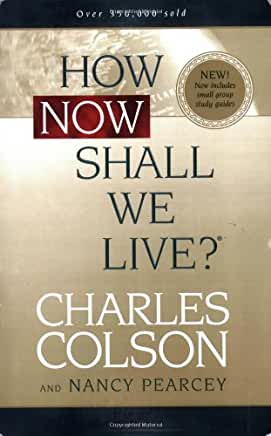 God is a creative and purposeful God, a God of order. In giving these instructions to the members of the human family, the Lord was assigning to them various tasks that, when fulfilled, would provide evidence of God’s image in man. Yet God had even more than this in mind. The following quote is a paraphrase of points Colson and Nancy Pearcey make in their landmark book, How Now Shall We Live?, about Genesis 1:28, what they call God’s “cultural commission.” When
God is a creative and purposeful God, a God of order. In giving these instructions to the members of the human family, the Lord was assigning to them various tasks that, when fulfilled, would provide evidence of God’s image in man. Yet God had even more than this in mind. The following quote is a paraphrase of points Colson and Nancy Pearcey make in their landmark book, How Now Shall We Live?, about Genesis 1:28, what they call God’s “cultural commission.” When
God gives this directive to Adam and Eve at this point on the sixth day of creation, He essentially passes the baton of work in the world to the human agents He has created. It is not His intention to abandon His creation or the people who are in it, for He still will be involved with them in a variety of ways. A great deal of social and cultural work now must be done to maintain the created order, but now, people will accomplish this work. The specific tasks involved relate directly to the God-given responsibilities of having dominion over creation and filling and subduing the earth.
Fifth and sixth, equality as the Founders viewed it affirms natural opportunities, as well as incentive and initiative to take advantage of such opportunities and to carve out even more — as long as those involved do not violate the inherent rights of their fellow citizens in the process. The fact that “all men are created equal” does not mean everyone has the same opportunities, or the same number of them. As we indicated earlier, equality means instead that all must be equally free to pursue the opportunities before them and equally free to try to create even more. While some will succeed in accomplishing their plans and desires, other will fail. Note this, for this point is critical: All must be given the freedom to fail; if they are not, they haven’t truly been given the freedom to succeed.
All must be given the freedom to fail; if they are not, they haven’t truly been given the freedom to succeed.
A seventh element of God-given equality in a nation that affirms God-ordained liberty is limited government. Because God has created all men equal, equality is already a reality. Government is not to be tasked with rearranging the “playing field” to achieve equality. Government’s job is primarily to protect the inherent rights of citizens. It does this by staying out of citizens’ way itself and by punishing or penalizing those who interfere, thereby violating the inherent rights of their fellow citizens. Government’s job is described in Scripture in Romans 13:1-7 and 1 Peter 2:13-17. As it fulfills its God-ordained duty of commending those who do well and punishing those who do wrong, government maintains order in society. Societal order is commended by Paul in 1 Timothy 2:1-4; no nation can keep liberty alive without it.

Here’s another aspect to the link between God-ordained human equality and limited government. Because government’s job is to maintain order by enforcing laws that protect citizens’ God-given rights, and because in fulfilling its God-ordained duties government maintains an atmosphere in which citizens can exercise their inherent rights, government exists for the people. The people do not exist for the government, as Karl Marx, the father of socialism and communism, believed.
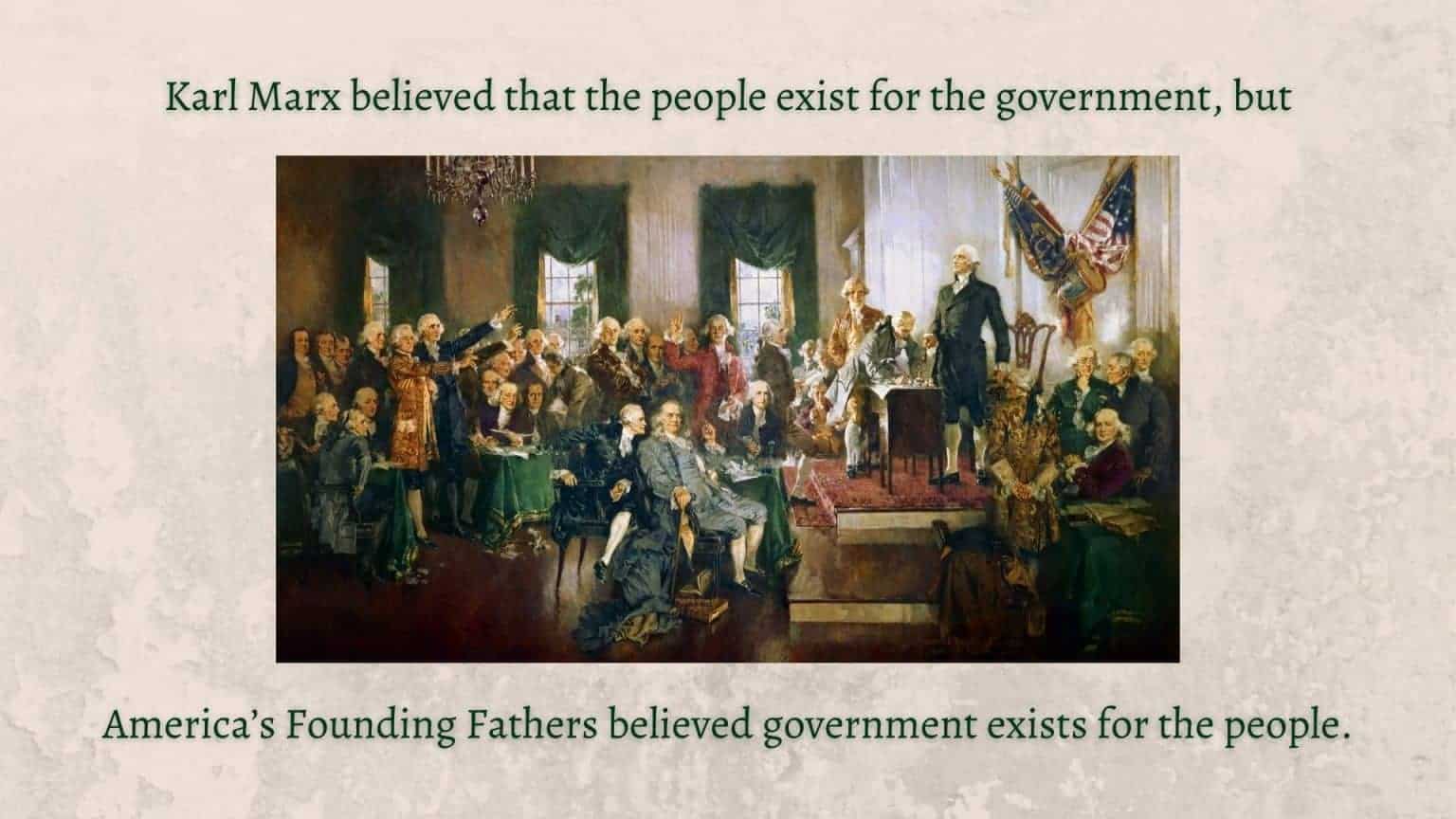
Eighth, the ideal of equality-in-men as presented in the Declaration of Independence not only is an affirmation and reflection of the biblical concept of human equality; it also constitutes an affirmation of “the Laws of Nature and of Nature’s God.” The Founders knew, and stated many times and in many different ways, that liberty cannot stay alive unless virtue thrives. Why? Because without virtue and the religious teachings that affirm them, people will use their freedom to take advantage of others, violating their rights and threatening liberty in society.
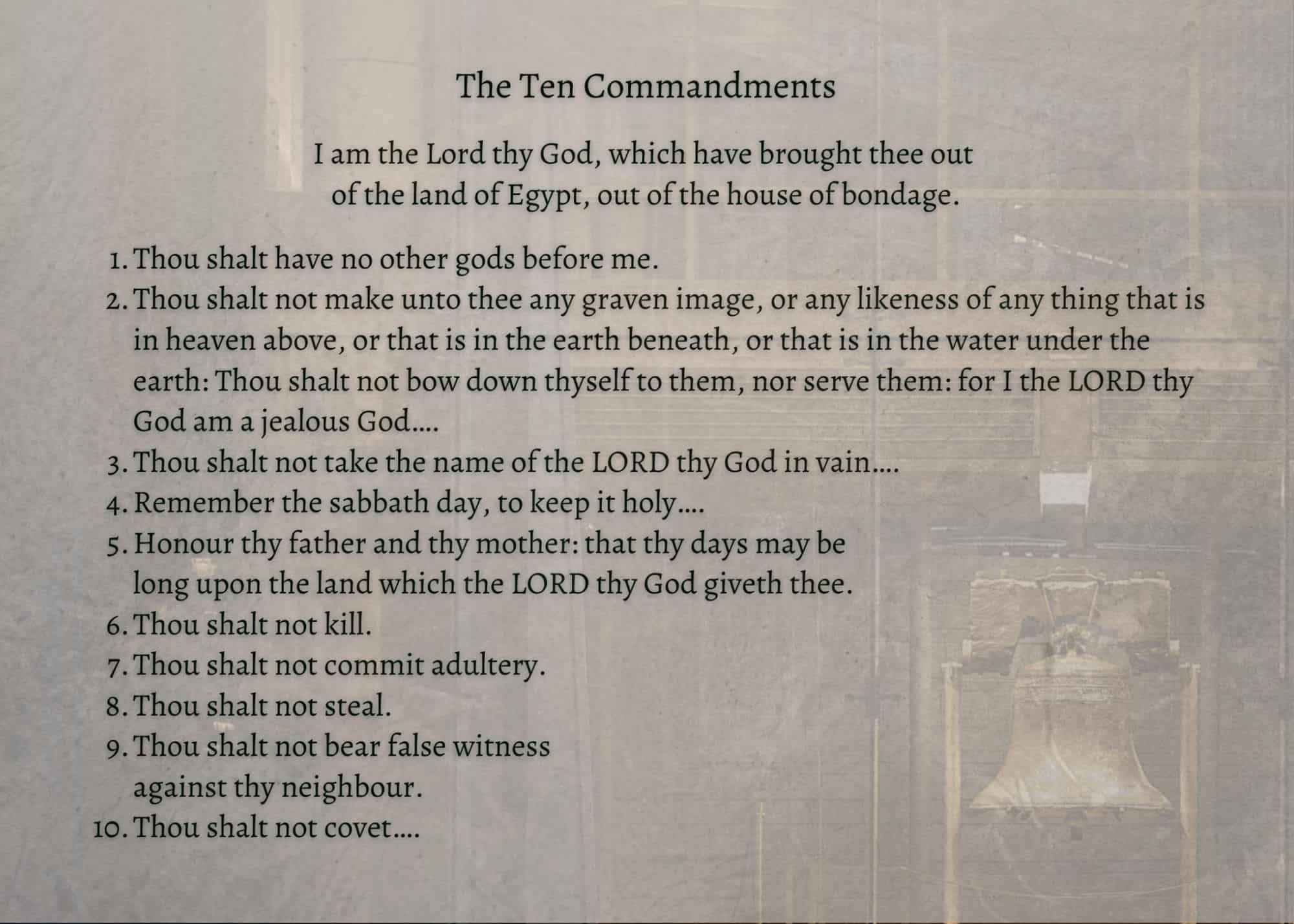 With human equality affirmed as inherent in all human beings, it is clear that one has a right to mistreat another individual. As we have said, when rights are violated, the state must punish those who are guilty. Whose laws do they have a responsibility to uphold? They must uphold God’s moral and ethical standards as expressed in the laws of the nation. Here we must warn at this point that a nation’s laws cannot be arbitrary if liberty is going to be preserved; they must be reflective of God’s standard of right and wrong. In this regard, the Ten Commandments is an excellent place to start, with the last six commands being especially relevant for the making civil law.
With human equality affirmed as inherent in all human beings, it is clear that one has a right to mistreat another individual. As we have said, when rights are violated, the state must punish those who are guilty. Whose laws do they have a responsibility to uphold? They must uphold God’s moral and ethical standards as expressed in the laws of the nation. Here we must warn at this point that a nation’s laws cannot be arbitrary if liberty is going to be preserved; they must be reflective of God’s standard of right and wrong. In this regard, the Ten Commandments is an excellent place to start, with the last six commands being especially relevant for the making civil law.
Ninth, the recognition of equality as innate among all citizens is essential for maintaining liberty. We’ve already said it; we repeat it here once more: Only if men are unequal will government and a nation’s people ever have any excuse to mistreat a citizen (or citizens), denying him or her (or them) the justice that all deserve just because they exist. The justice of which I speak isn’t social justice, but biblical justice, something government is obligated to provide.
Tenth, the Founders’ perspective on equality echoes down through the centuries to warn 21st-century Americans that the contemporary American definition of equality, which calls on government to create and maintain it, is a deadly threat to ordered liberty. Founding father Samuel Adams understood this. He said,
If ye love wealth better than liberty, the tranquility of servitude than the animated contest of freedom – go home from us in peace. We ask not your counsels or arms. Crouch down and lick the hands which feed you. May your chains sit lightly upon you, and may posterity forget that you were our countrymen!
Conclusion and Challenge
First, let’s review. The view America’s Founding Fathers held on equality is biblical. It is God-given and involves every member of the human family, because God has created every individual person in His image. All people already are equal because God created them equal. Government’s job is to recognize this and protect the rights that flow from God-given equality. This perspective on equality aligns with other biblical ideals and teachings as well. We discussed ten of these:
-
-
-
- Accountability
- Duty and responsibility
- Human dignity
- Purpose
- Affirmation of opportunity
- Incentive and initiative
- Limited government
- Affirmation of God’s laws the laws of nature and of nature’s God
- A key to maintaining liberty
- A warning about the dangers of becoming dependent on the government
-
-
How different is America today from what it was at the time of its founding! We live in a day when, in the name of equality, all kinds abuses are taking place — abuses committed by both citizens and government. Those of us who understand, even a little bit, about the liberating nature of the kind of equality the Founders upheld — we have a challenge.
Here’s what we said about equality in “Principles of Liberty, Part 2”: The
concept that “all men are created equal” became one of the most powerful ever upheld by a nation. We can be grateful for this in many ways, but a word of warning is in order.
In recent decades, Americans foolishly have rallied around the banner of equality alone when, in the original statement on America’s “birth certificate,” the meaning of the word equal is informed, tempered, and shaped by the word created. Created, in turn, is linked inseparably to the divine title Creator. The implications of these realities, of course, are enormous.
In Part 1 and in this post, we have sought to highlight some of these implications. While these concepts aren’t difficult to understand once they’ve been adequately explained, far too few have opportunities to learn the kinds of ideas you’ve been reading. Now more than ever, it’s important to find ways to share these insights with others.
Here is a challenge for you: Read Principles of Liberty if you haven’t already. Engage with the Bible study material on this topic at Discover Bedrock Truth. Consider leading a group in the study series in your home or at your church. Currently, this material is available without charge to all who wish to use it.
I close with these insightful statements, the first three of which can be found here.
-
- Enlighten the people generally, and tyranny and oppressions of body and mind will vanish like evil spirits at the dawn of the day. — Thomas Jefferson
- It is favourable to liberty. Freedom can exist only in the society of knowledge. Without learning, men are incapable of knowing their rights, and where learning is confined to a few people, liberty can be neither equal nor universal. — Benjamin Rush
- A diffusion of knowledge is the only guardian of true liberty. — James Madison
- Righteousness exalts a nation,
But sin is a reproach to any people (Prov. 14:34). - If My people who are called by My name will humble themselves, and pray and seek My face, and turn from their wicked ways, then I will hear from heaven, and will forgive their sin and heal their land (2 Chron. 7:14).
- Blessed is the nation whose God is the Lord,
The people He has chosen as His own inheritance (Ps. 33:12). - This is our land. This is our world. This is our heritage, and with God’s help, we shall reclaim this nation for Jesus Christ. And no power on earth can stop us. — D. James Kennedy
Copyright © 2022 by B. Nathaniel Sullivan. All rights reserved.
top image credit: Lightstock
Unless otherwise indicated, Scripture has been taken from the New King James Version®. Copyright © 1982 by Thomas Nelson, Inc. Used by permission. All rights reserved.


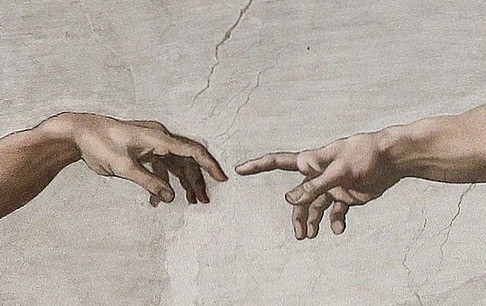
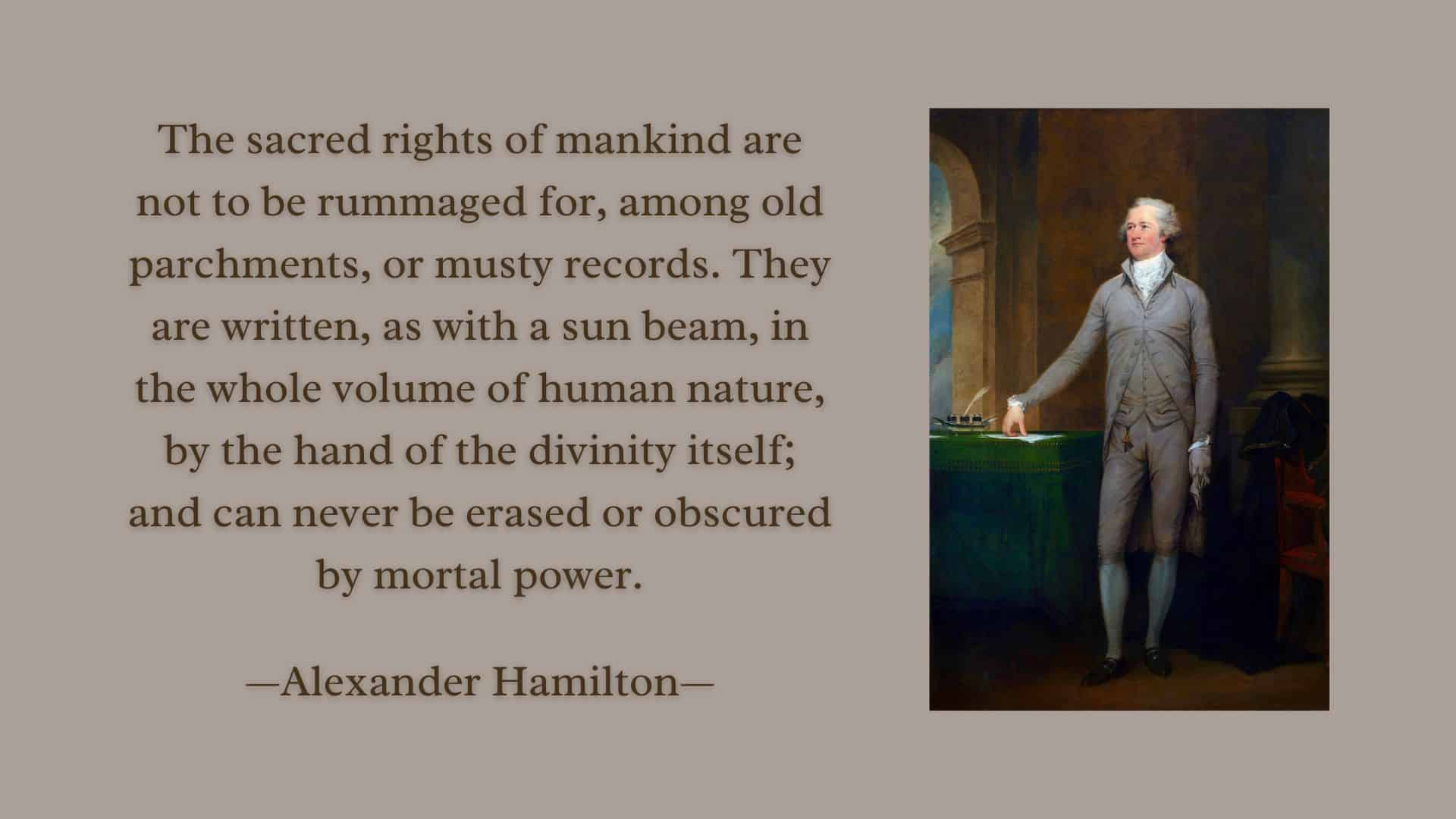
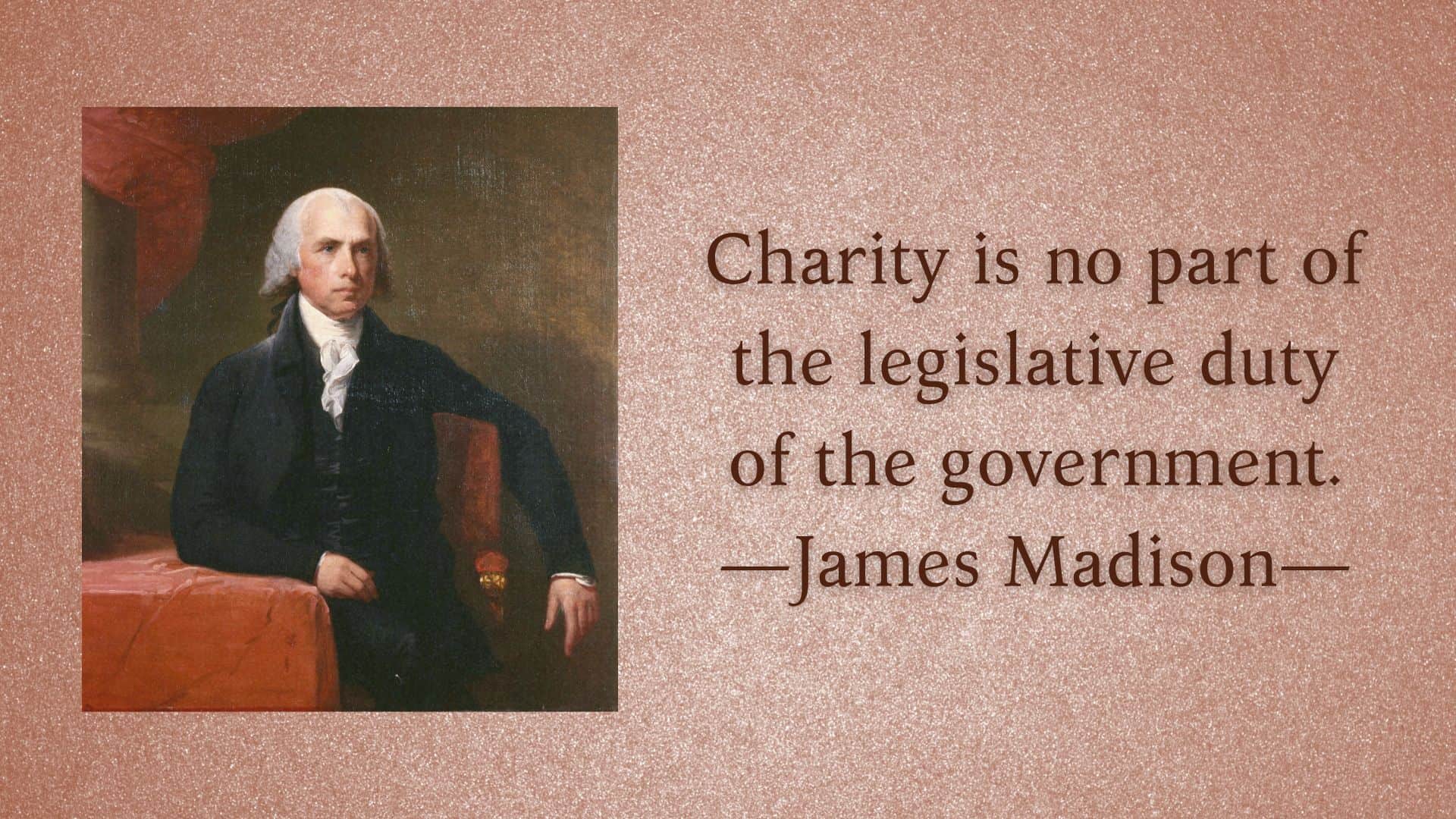

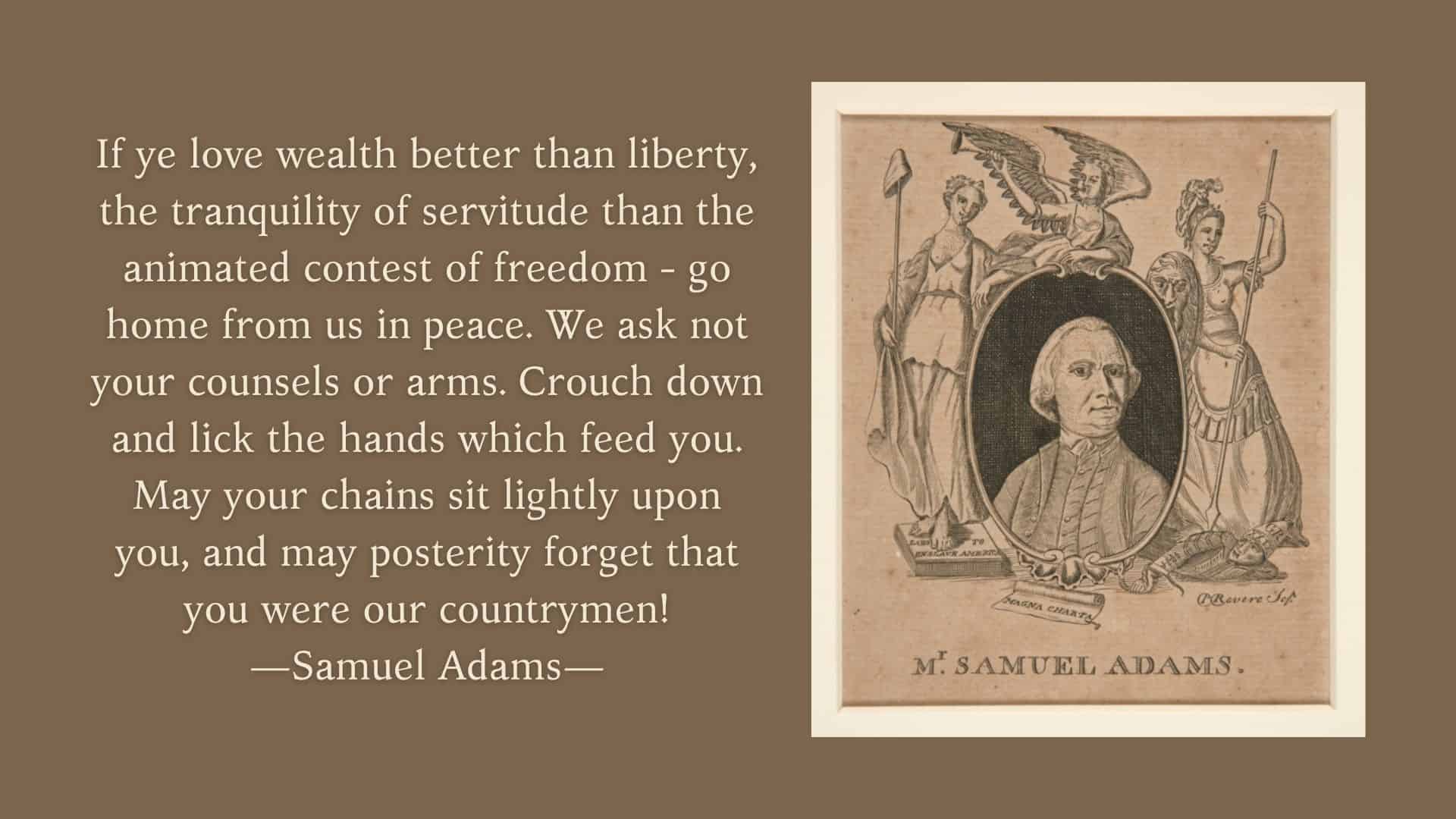
Be First to Comment